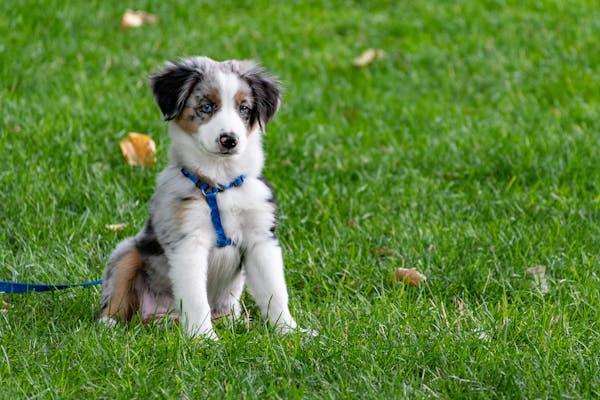As dogs age, their needs change, much like humans. Senior dogs may slow down, experience health problems, or require a more specialized level of care. Providing the right environment and attention can help your aging dog enjoy a comfortable and happy life during their golden years. Below are some essential tips for caring for a senior dog.
1. Regular Veterinary Check-Ups
Routine visits to the vet become increasingly important as dogs age. Annual or bi-annual health screenings can help detect problems early, allowing for more effective treatment. Your vet may recommend blood tests, dental exams, and checking for signs of arthritis or other age-related conditions like heart disease, diabetes, or kidney issues.
2. Adjusting Their Diet
Older dogs may have different nutritional needs compared to when they were younger. High-quality senior dog food is typically lower in calories and contains ingredients to support joint health, such as glucosamine and omega-3 fatty acids. Ask your vet to recommend food that matches your dog’s specific health status, weight, and any underlying conditions like obesity or food allergies.
3. Maintaining an Active Lifestyle
While your senior dog may not have the energy of a puppy, it’s essential to maintain a regular exercise routine. Gentle activities like short walks or swimming can help keep their muscles strong, reduce stiffness, and prevent obesity. Exercise also supports mental well-being, helping to stave off cognitive decline.
4. Weight Management
Obesity in senior dogs can exacerbate health problems like arthritis, heart disease, and diabetes. Managing their weight through portion control and appropriate exercise is crucial to their overall health. Consult with your vet to determine an ideal diet plan and weight target.
5. Comfortable Living Environment
As dogs age, their joints may become stiff, and they may have trouble getting around. Make sure your home is accommodating to their changing needs. Provide a soft, supportive dog bed to ease joint pain, and place water and food bowls at a height they can easily reach. If your dog struggles with stairs, consider ramps to make it easier for them to get up on the furniture or navigate your home.
6. Monitor Their Behavior for Changes
Older dogs can develop cognitive issues similar to dementia in humans, known as Canine Cognitive Dysfunction (CCD). Symptoms include confusion, restlessness, increased anxiety, or changes in their sleep cycle. If you notice these signs, consult your veterinarian for possible treatments or management strategies.
7. Dental Care
Dental problems are common in senior dogs, and they can lead to infections and discomfort. Regular dental check-ups, brushing your dog’s teeth at home, and offering dental chews can help maintain oral health. If your dog shows signs of dental issues, such as bad breath, difficulty eating, or excessive drooling, a visit to the vet is necessary.
8. Support for Arthritis and Joint Issues
Many senior dogs experience joint pain due to arthritis. Medications like anti-inflammatory drugs, supplements such as glucosamine and chondroitin, and therapeutic options like acupuncture or hydrotherapy can all be effective in managing arthritis pain. Speak to your vet about these options to see what might help your dog.
9. Grooming
Older dogs may have more difficulty grooming themselves, so regular grooming sessions can help maintain their coat and skin health. Brushing your dog’s fur stimulates circulation, removes dead skin cells, and promotes a healthy coat. Also, keep an eye on their nails, as they may not wear down as quickly if your dog is less active.
10. Providing Mental Stimulation
Cognitive function may decline in older dogs, but keeping their mind active can help delay this process. Puzzle toys, training new tricks, or simply engaging with your dog more frequently through play or walks in new environments can keep their brain sharp.
11. Increased Bathroom Breaks
Senior dogs often need to relieve themselves more frequently. Their bladder control can weaken, and some may develop conditions such as incontinence. Ensure they have easy access to outdoor spaces or puppy pads for indoor use. Be patient and understanding if accidents occur, as this is a natural part of aging for some dogs.
12. Understanding Their Limitations
As dogs age, their physical and mental capabilities will decline. It’s important to respect their limits and not push them to do activities they can no longer enjoy or handle comfortably. Provide a supportive environment that caters to their changing abilities, allowing them to move at their own pace.
Conclusion
Caring for a senior dog requires patience, understanding, and adjustments in how you meet their needs. By providing regular veterinary care, a proper diet, comfortable living conditions, mental stimulation, and gentle exercise, you can help ensure that your aging dog has a high quality of life in their later years. Every moment with your senior pet is precious, and with the right care, they can continue to live happily by your side.

